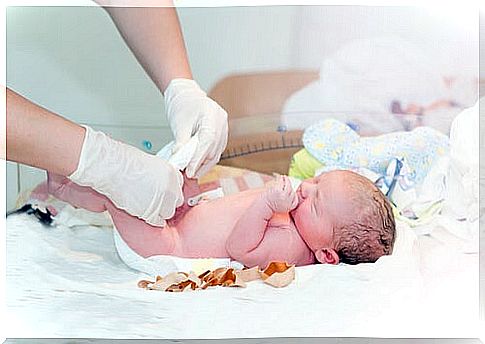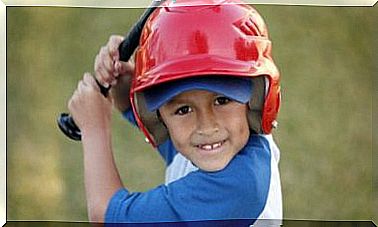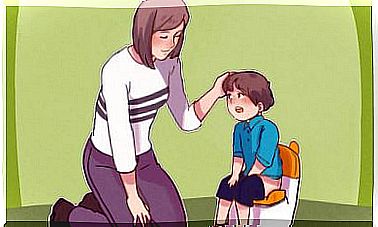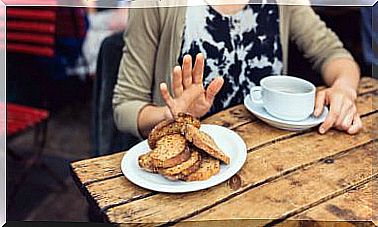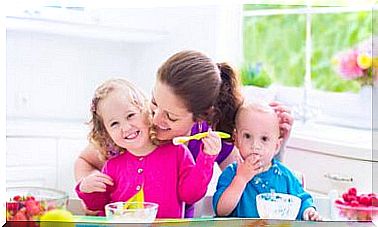Baby Care In The First Hours Of Life: What Does He Need?
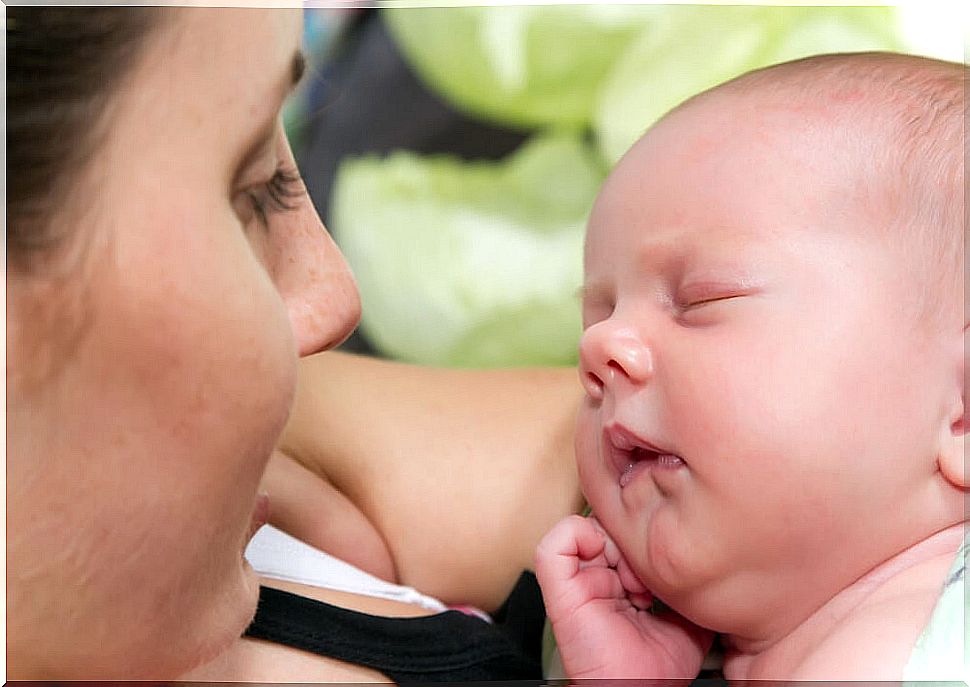
After birth, if everything has gone well, the only care that the baby needs are to make skin-to-skin contact and initiate breastfeeding by spontaneous latching in the first hour of life.
Skin-to-skin contact should be maintained, according to the WHO, for a minimum of one hour, although ideally this should be carried out for two hours uninterrupted. During these two hours we should not perform any technique that is not essential to the baby, only cover it with a warm cloth.
During this skin-to-skin contact, the identification bracelet and the umbilical cord clamp will be placed on the baby. If the parent wishes, the parent or companion may be offered to cut the cord.
The ideal is to place it on the mother’s breast, in a biological rearing position, and not disturb them. It is important to encourage the latch on to occur spontaneously after recognition by smell and touch of the baby.
Importance of the first hour of life.
There is a period called the sensitive period, which occurs in the two hours after birth, in which the baby is in a calm state of alert. This alertness is caused by the norepinephrine rush that occurs in labor.
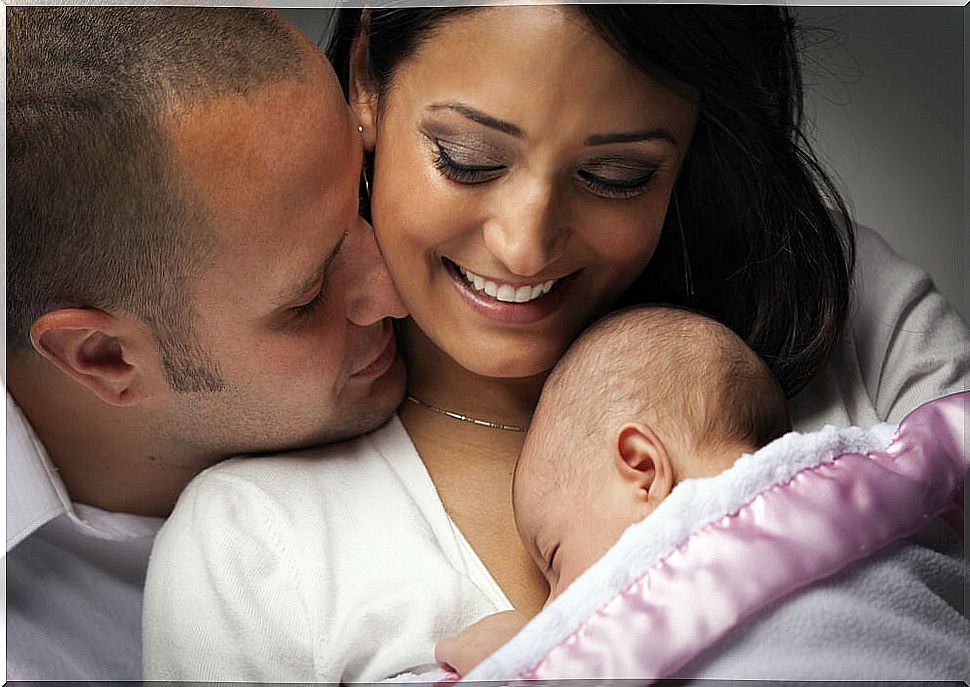
This first hour after birth is one of the most critical phases, since there are a series of changes to which the newborn must adapt.
There is a sudden need to breathe, a surge of behavioral hormones such as oxytocin, requires metabolic adaptation, and thermoregulation begins. In addition, he must adapt to a new environment unknown to him.
Two hours after birth, and not before, the baby’s care consists of administering an eye ointment to the baby, which is a prophylaxis against infections. We should not administer it before these two hours, as it interferes with the baby’s vision, making it difficult to latch onto the breast.
In addition to this, and with the consent of the mother or father, we will administer vitamin K to prevent hemolytic diseases of the newborn. This vitamin K can be administered intramuscularly or orally. Existing studies point to a greater efficacy of the intramuscular route.
In this sense, these two hours you will stay in the delivery area of your hospital, and later you will go to the maternity ward.
Baby care during admission to the maternity ward
The baby will be weighed in the delivery room or in the maternity ward, depending on the hospital, and, according to the protocols of your hospital, the baby will be seen by the pediatrician, they will measure it and they will weigh it again every day.
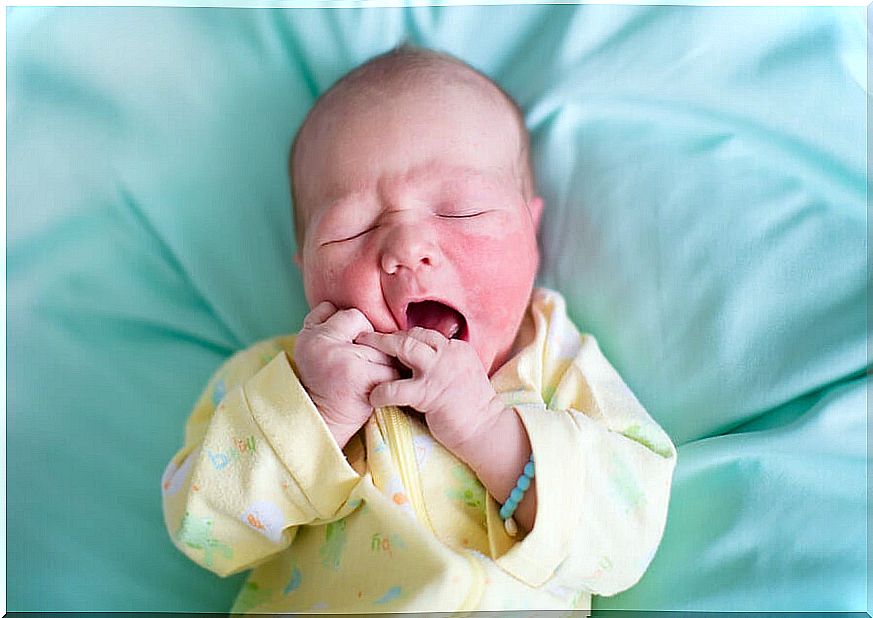
As for the baby’s bath, it can be done when it has reached thermal stability. It will be done with soap and water. The most important thing is to keep the diaper area clean and dry, changing it whenever necessary.
The cure of the cord will depend on the protocol of your hospital; in some cases it will be done with soap and water and in others with 70º alcohol. The most important thing is to keep it dry, and it will shed between the seventh and tenth day from birth.
Another care of the baby between 48 and 72 hours is the performance of the heel test. This is used to rule out metabolic diseases such as phenylketonuria or hypothyroidism. It is done through a puncture on the outside of your heel, which allows you to collect a blood sample. It is important that this test be done while you are breastfeeding, as this is pain reliever for him.
Neonatal hearing loss screening will also be carried out, to make an early diagnosis that allows minimizing its consequences. To do this, they will place some stickers on your baby’s head and it will not bother him.
Another test that your baby will perform is pulse oximetry or cardiac screening , which consists of measuring your baby’s pulse and saturation to detect congenital heart disease.
As for the visits, the ideal is that they are brief; you and your baby need to get to know each other and adapt. Continuing skin-to-skin contact in maternity is very important for breastfeeding and for the development of an adequate emotional bond. It is important that the baby does not pass from arms to arms between all visits.
